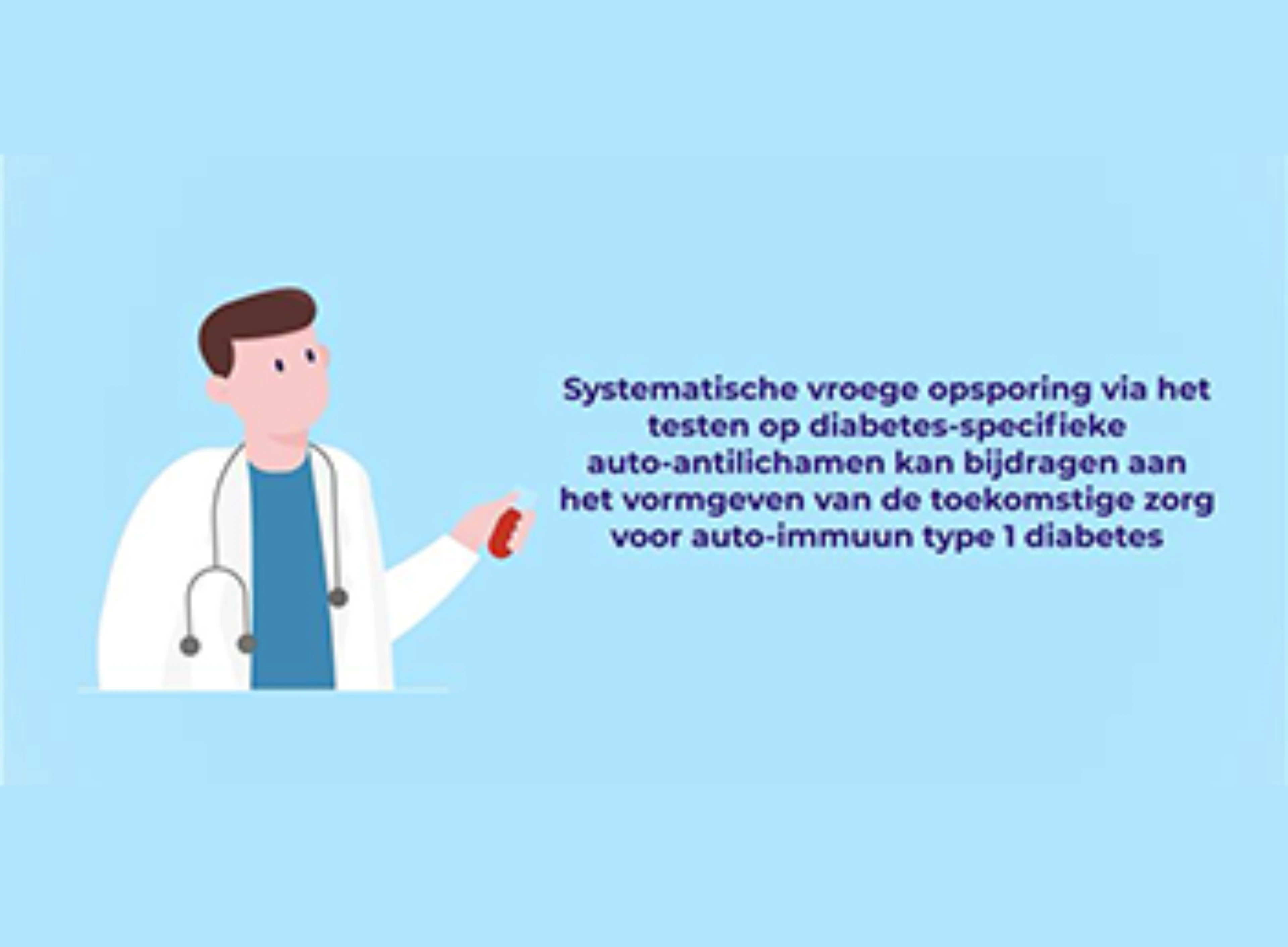
The story of the Beta Cells and their role in autoimmune Type 1 Diabetes
A Beta way - Type 1 diabetes
Deze website is uitsluitend voorbehouden aan beroepsbeoefenaren in Nederland.


A Beta way - Type 1 diabetes

Autoimmune Type 1 Diabetes (T1D) can be detected through islet autoantibody testing years before symptoms appear.1-2 The video here explains how the condition progresses silently through presymptomatic stages, with beta cell destruction occurring long before symptom onset and clinical diagnosis.4-8

Parent's experiences of stage 3 diagnosis of T1D.

Autoimmune type 1 diabetes (T1D) is a progressive disease in which the decline in beta cell function usually begins months or sometimes years before clinical symptoms are observed.1–3 You can identify such patients at risk of developing autoimmune T1D before clinical symptoms are noticed by you or your patient.3

Individuals living with other associated autoimmune diseases like celiac disease or autoimmune thyroid disease, are at an increased risk of developing autoimmune type 1 diabetes (T1D) and should be appropriately screened.1-6

Delay in screening for autoimmune type 1 diabetes (T1D) can increase the risk of diabetic ketoacidosis (DKA) at diagnosis—a critical complication that is potentially life-threatening and may result in long-term poor glycemic control and neurological complications.1,2 By identifying autoimmune T1D early, you can significantly lower the risk of DKA at diagnosis.3,4

Individuals who screen positive for ≥1 autoimmune islet cell antibodies need periodic medical monitoring, which includes regular assessments of blood glucose and HbA1c levels. You can also educate them about symptoms of diabetes, diabetic ketoacidosis (DKA), and provide psychosocial support to prepare them for a possible clinical diagnosis for type 1 diabetes (T1D).1

The progression of autoimmune type 1 diabetes (T1D) is gradual, often detectable months or even years before symptoms arise.1–3 Through proactive screening, we can identify the condition well in advance.3 Meet our ambassadors living with autoimmune T1D and discover the risk factors to look out for when considering who to screen.

The Type 1 Diabetes (T1D) field is evolving. Recognition of the presymptomatic stages in T1D is growing.1-4 The clinical benefits of early detection of T1D are being highlighted.3-4 Programmes focusing on early detection through testing and screening for presymptomatic autoimmune T1D are increasingly offered to risk populations and the general population.1,2

In a cozy house in Zaandam lives Nicole (48), together with her husband Wim and their two cats. She describes herself as adventurous and sporty, with a passion for painting and exploring nature during her travels. But behind that positive appearance lies a lifelong challenge: since the age of six, Nicole has lived with type 1 diabetes. It has shaped her life, both personally and professionally, but it has never stopped her from exploring new paths.

Hilde (35) says it without hesitation, her voice determined. She is the mother of Koreanne (10) and Tije (8), married to Chris, and lives in Uithuizen, the northernmost point of the Netherlands. Their lives changed forever when their son Tije, then four years old, was diagnosed with type 1 diabetes.

Anti-islet autoantibodies that target proteins associated with beta-cells serve as biomarkers of autoimmune type 1 diabetes (T1D) development.1 The number of detectable autoantibodies through screening correlates with risk of developing autoimmune T1D.2 Assays for detecting autoimmune T1D have shown high sensitivity and specificity.3,4


Curious about the characteristics of pre-symptomatic- and stage 3 Type 1 Diabetes? Interested in learning about the potential benefits of screening for autoimmune Type 1 Diabetes? This short film gives you an overview of recent developments in diagnosis of Type 1 Diabetes, showcasing how early detection efforts can benefit those who need it the most.

This infographic summarizes survey data* about the impact that families in the Netherlands and Belgium have felt when being diagnosed with autoimmune Type 1 Diabetes (T1D).

Systematic early detection of autoimmune Type 1 Diabetes might be a new way to avoid acute and chronic complications of the condition.1-5 This new approach may play a role as a revolutionary shift, helping to shape the future of Type 1 Diabetes management.2

Start to think differently about Type 1 Diabetes by considering the pre-symptomatic stages of the condition and how it affects people of all ages and their families.


Ondanks de mogelijkheid voor een medische uitzondering, bleek uit een groot wereldwijd onderzoek dat vier van de tien moslims met diabetes type 1 en acht van de tien moslims met diabetes type 2 meer dan vijftien dagen vasten tijdens de ramadan.2